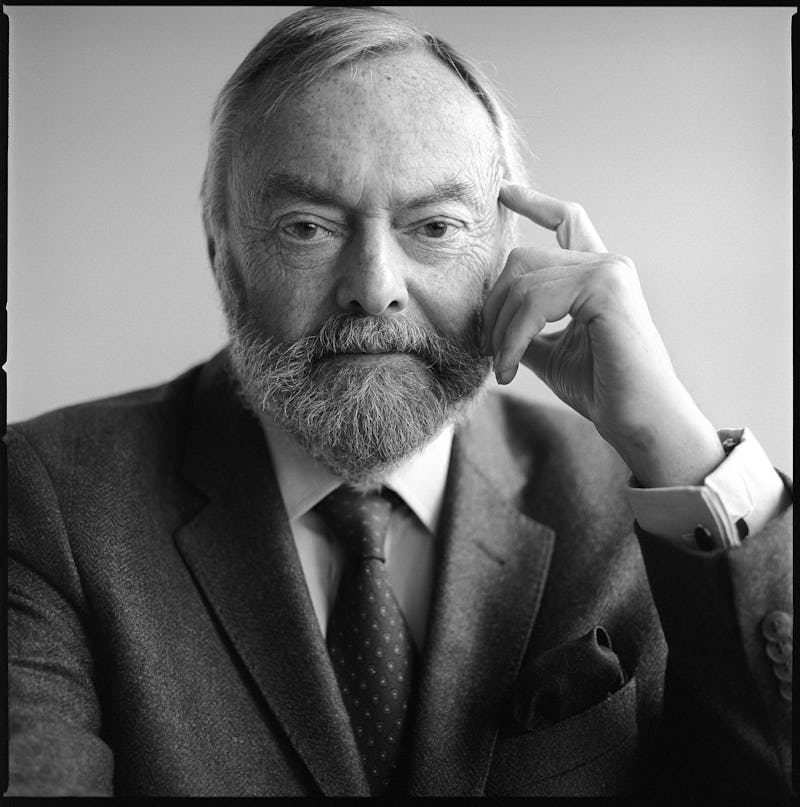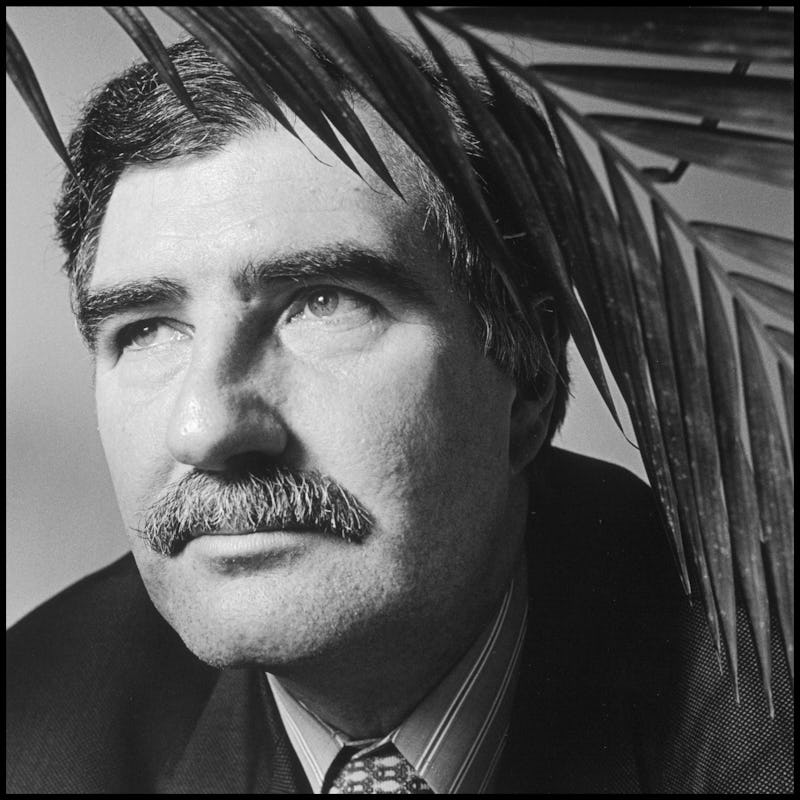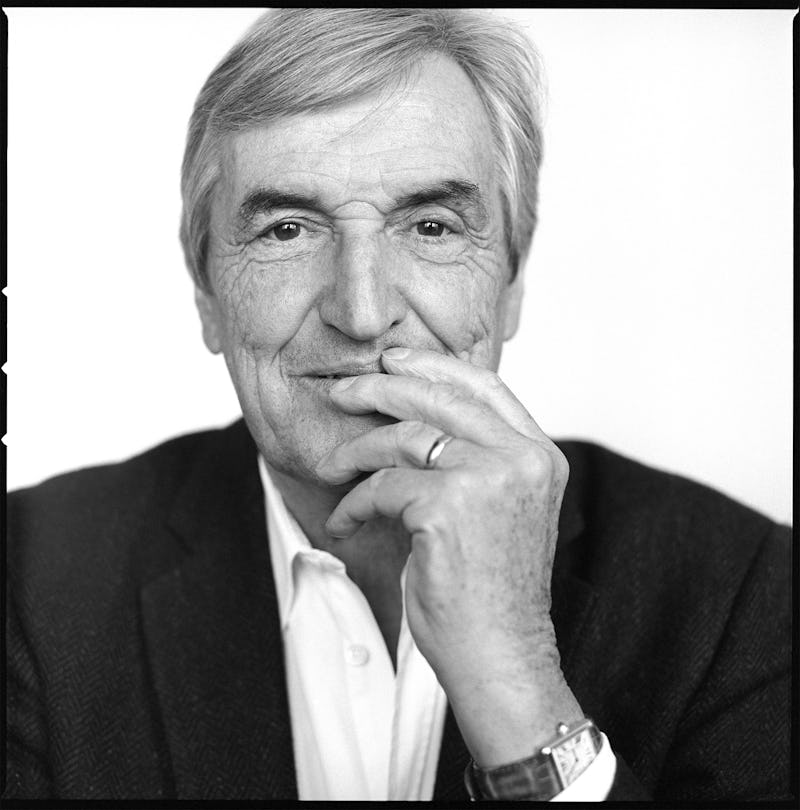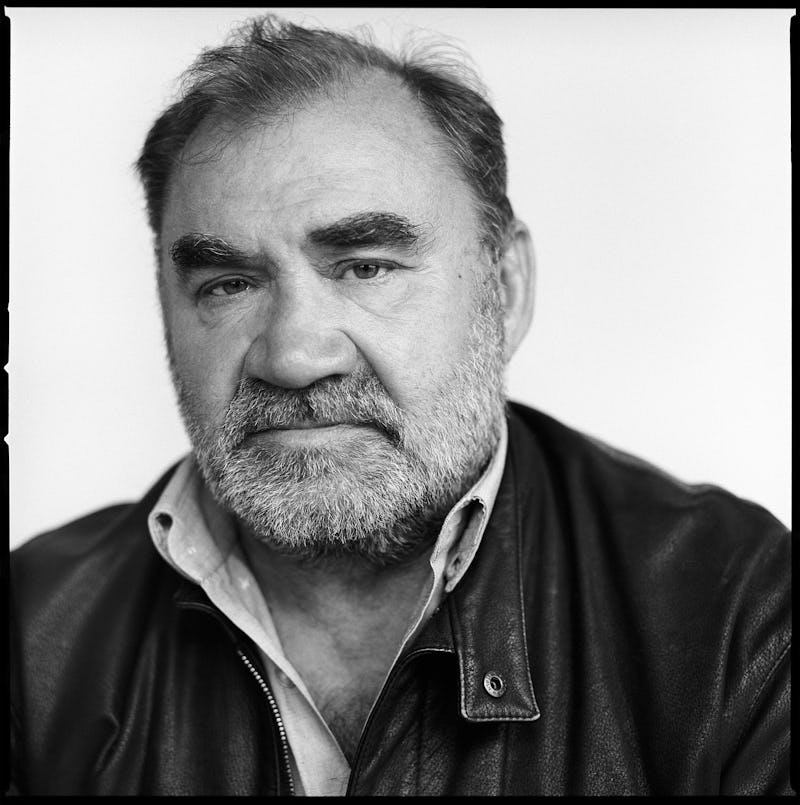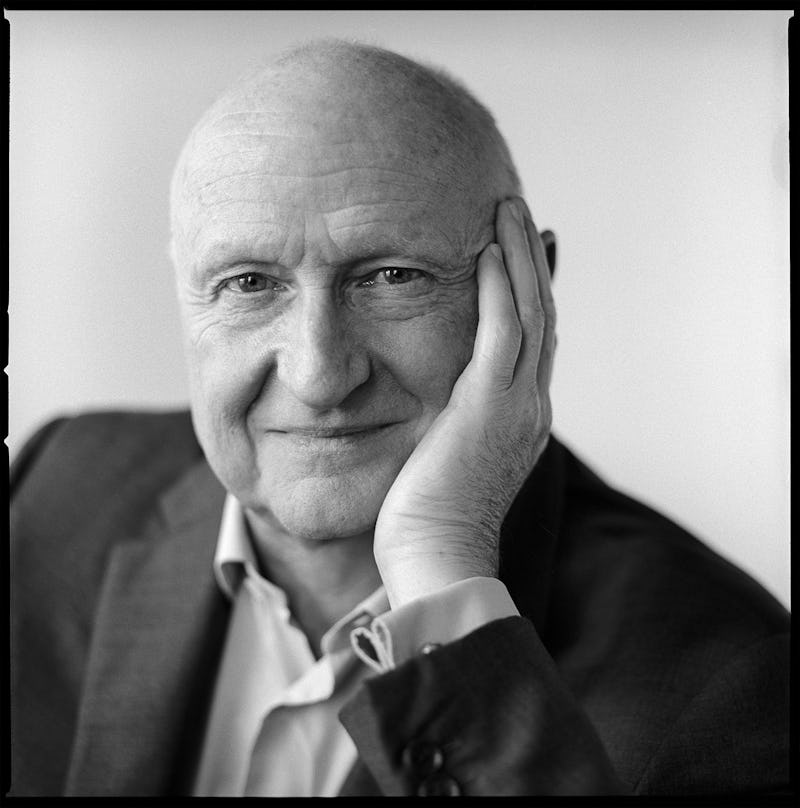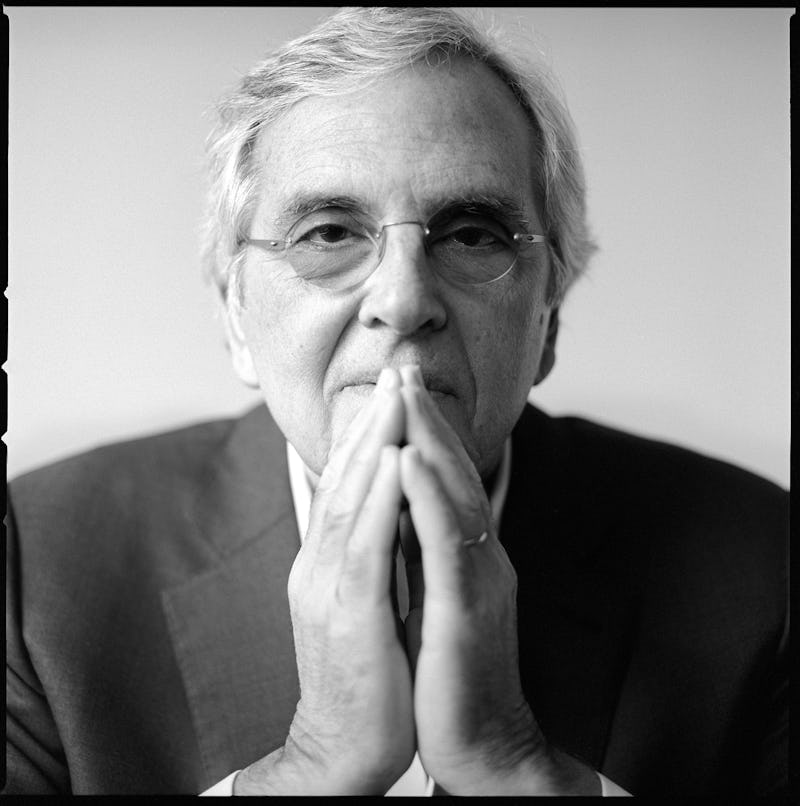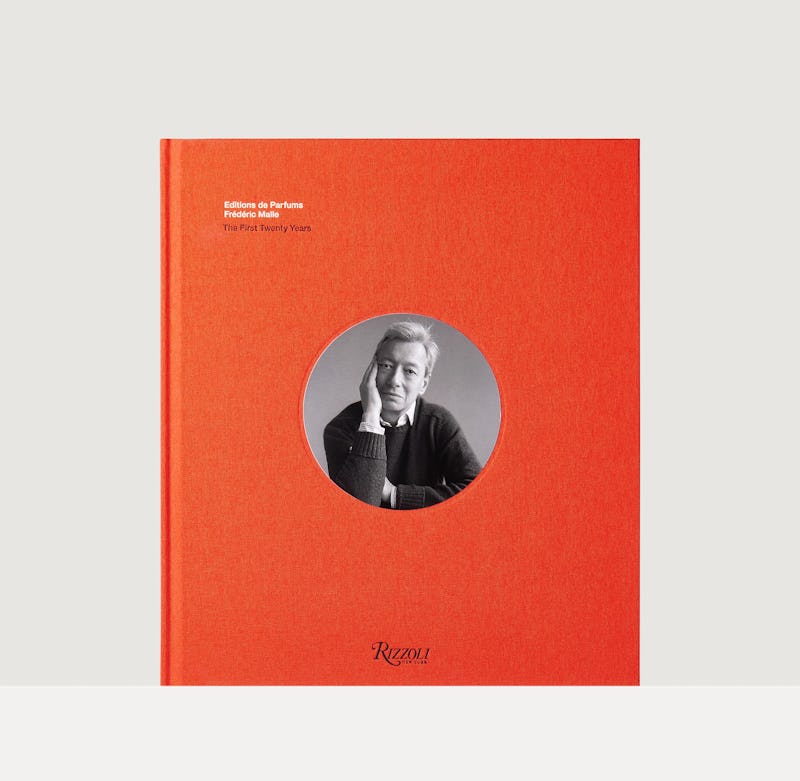A PORTRAIT OF THE STAR PERFUMERS,
BY THE PERFUME PUBLISHER
A PORTRAIT OF THE STAR PERFUMERS,
BY THE PERFUME PUBLISHER
The creation of Editions de Parfums Frédéric Malle twenty years ago would have been impossible without the enthusiastic participation of the world’s best perfumers in Frédéric Malle’s project. His goal was to restore the dignity of perfume by allowing perfumers total creative freedom, thus granting them true authorial status. An idea which may seem obvious today but which, in 2000, was an unprecedented wager. Here, the publisher pays tribute to the house’s star perfumers in the form of a series of portraits.
Pierre Bourdon, Jean-Claude Ellena, Maurice Roucel, and Dominique Ropion photographed by Brigitte Lacombe. Edouard Fléchier photographed by Guillaume Luisetti.
Pierre Bourdon
The relationship between Frédéric Malle and Pierre Bourdon is almost a family one. René Bourdon, Pierre’s father, spent his entire career at Dior, where he worked for Frédéric Malle’s grandfather, then with his mother before she succeeded him as head of perfume and make-up development. When Frédéric Malle joined Roure in the eighties, Pierre Bourdon was already a star—in particular, as the creator of Cool Water. Quite unexpectedly, having studied at Sciences-Po, Pierre Bourdon decided to become a perfumer, and attended the Roure Perfumery School in Grasse. Simultaneously, he had the unique privilege of taking lessons with Edmond Roudnitska, the great perfumer of the house of Dior. Roudnitska was to be a profound influence upon Bourdon’s way of working: a stripped-down aesthetic, combined with the utmost rigor. Given these parallels in their education and career paths, Frédéric Malle and Pierre Bourdon share a common culture, references, and language. In the course of their collaborations, the bond between the two men has become ever closer, resulting in a real creative intimacy. It was quite natural, then, that Bourdon would be the first person to whom Frédéric Malle presented his plan for Editions de Parfums. Bourdon strongly encouraged him, concerned as he already was about what the profession of perfumer was becoming. His successes (such as Davidoff’s Cool Water) had been so widely imitated that he had begun to dream of creating perfumes that other houses would not be able to offer. Whence the idea of working on perfumes built around a raw material that is expensive and complex to use—an idea that was to become one of the guiding principles of creation at Editions de Parfums. Iris Poudre was the first perfume created by Pierre Bourdon for the publisher, to be followed by French Lover in 2007.
Edouard Flechier
Frédéric Malle remembers how, when he arrived at Roure, everyone was breathing in the heady notes of Poison, which even pervaded the Paris Métro! At the time, the perfume’s author, Edouard Fléchier, was already seen as one of the iconic names of the profession. What struck Frédéric Malle immediately was Fléchier’s immense modesty, a trait often found within the guarded and closed circle of star perfumers. It was undoubtedly out of kindness, and because he recognized Malle’s passion for perfume, that the perfumer decided to help him learn to smell. Malle was immediately fascinated by Fléchier’s olfactory abilities. “Edouard does not smell, he sees.” He is able to identify every raw material down to its finest details, as if his sense of smell were drawing it through the sensors of some infallible scanner. It becomes a world in itself, inviting the perfumer to bring it together with others, thus favoring the creation of new alchemies. Malle was also impressed by Fléchier’s extraordinary precision and his ability to listen, which allows him to respond exactly to requests made to him. He remembers that, when he spoke to Fléchier about his publishing project, the perfumer was amused. So, it is more out of friendship and generosity that he created Lys Mediterranee for Frédéric Malle in 2000, followed by Une Rose in 2003.
Jean-Claude Ellena
“A free perfumer, with his own world.” Jean-Claude Ellena’s reputation precedes him. He has given contemporary perfumery great creations such as Cartier Déclaration and Terre d’Hermes. When Frédéric met him at Givaudan, Jean-Claude Ellena was composing Eau de Bulgari. The two men’s paths crossed, and they got on famously. Frédéric understood that Jean-Claude is a different kind of perfumer: he’s not guided by rules or market trends. For Frédéric Malle, the perfumer’s voice is in the image of the perfumes he creates: “a soft, delicate voice, which whispers rather than shouts,” but always commands one’s attention. Describing himself as a “writer of scents,” Ellena was immediately seduced by the Editions de Parfums project. He immediately understood the ambition and significance of recognizing the status of perfumers as authors. For Editions de Parfums Frédéric Malle, Jean-Claude Ellena composed Angeliques Sous la Pluie (2000), Cologne Bigarade (2001), and then Bigarade Concentree (2003), as well as L’Eau d’Hiver (2003) and Rose & Cuir (2019).
Maurice Roucel
When Frédéric Malle called Maurice Roucel to discuss his plans for Editions de Parfums, he did so on the recommendation of Pierre Bourdon, who considered Roucel a truly unique author. Maurice Roucel is the only star perfumer that the publisher did not know personally at the beginning of the venture. On the other hand, he was aware of his reputation, and recognized his ability to create perfumes with character. To Roucel, the project sounded too good to be true—he could hardly believe his ears, when Frédéric Malle explained it to him. Taking the plunge with great gusto, he proposed a creation to Frédéric Malle a creation made without any heed to the market, but which he considered to be the most beautiful he had ever composed: Musc Ravageur. Trained as a chemist, Maurice Roucel learned the craft of perfumery under the guidance of Henri Robert at Chanel. A most uncompromising character, Maurice Roucel makes perfumes accordingly: at once extremely sensual, generous, full-blooded, but also precise and deliberate. For the publisher, in addition to Musc Ravageur, he has authored Dans tes Bras in 2008.
Dominique Ropion
When speaking of Dominique Ropion, Frédéric Malle unhesitatingly declares that working with him was one of the luckiest breaks in his life. He speaks of a friendship built up over hours spent testing and discussing perfumes together. Frédéric remembers that, when he briefly met Dominique at Roure, it was already whispered that he was a “future great”: he dared to use great overdoses of ingredients that no one else would dream of trying. According to the publisher, “in perfumery there are those who have ideas, those who know how to finish perfumes, and those who combine both talents”—which is the mark of the very best. Formidably imaginative and precise in his work, Dominique is one of them. His immense curiosity, coupled with a phenomenal memory, leads him relentlessly to explore new avenues. It is easy to observe the great complicity between perfumer and publisher, and their mutual respect for one another’s expertise. With his calm disposition, softly spoken and sometimes sparing with his words, Dominique Ropion is nevertheless an amusing and enthusiastic partner in crime when it comes to working as a duo with Frédéric Malle. Both extremely demanding perfectionists, the two of them recognize that they drive one another hard. For Editions de Parfums, Dominique Ropion has composed numerous works: Une Fleur de Cassie (2000), Vetiver Extraordinaire (2002), Carnal Flower (2007), Geranium pour Monsieur (2009), Portrait of a Lady (2010), Cologne Indelebile (2015), The Night (2014) and Promise (2017) in the Desert Gems collection, as well as Superstitious (2017).
Carlos Benaïm
Carlos Benaïm, historic superstar of IFF, has been a great name in perfumery for almost fifty years now. Frédéric Malle met him when he moved to New York, firstly discovering a man with a southern temperament, overflowing with warm sensuality, and then a perfumer with an innate sense of chic (similar in this respect to Edouard Fléchier) and therefore a sense of balance. Benaïm and Malle got to know one another by creating perfumes for the house: the bracing Jurassic Flower, as well as the mystical Saint des Saints inspired by the scent of an Indian temple. The two men have in common the culture and references of the perfumery of the “past,” particularly the period between the 1950’s and 1980’s. But they also share a constant quest for modernity. It is this quest that gave rise to the idea of a perfume built around the citric freshness of the magnolia flower, Eau de Magnolia (2014), followed by Music for a While (2018). Like all perfumers, Benaïm likes to test his perfumes in silence. However, whereas conversation usually starts to flow when weighing ingredients, during this time Carlos Benaïm prefers to stay quiet and focused on his subject—a meditative penchant also expressed in his painting and nature walks. For Frédéric Malle, he composes for the pleasure of it, but has the generosity to share this world of his own.
Brought together for the first time around Frédéric Malle at the Perfume Summit held by Editions de Parfums in Paris on September 24 and 25, 2020, the greatest perfumers in the world (apart from New Yorker Carlos Benaïm, unable to travel under current circumstances) talked together about the profession of the perfumer, and the opportunity given to them by Frédéric Malle to join him in creating works they can be proud to be the authors of.
